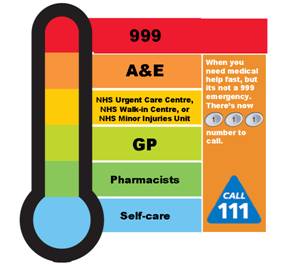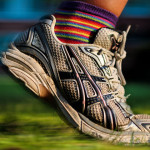
This in from Isle of Wight NHS. In their own words. Ed
The Island’s Emergency Department and Out of Hours Services are urging Islanders to make sure they have a sufficient supply of their regular medication and seek advice from their Pharmacist or GP or the NHS 111 before visiting the Beacon Health Centre or the Emergency Department at St. Mary’s.
Director of Nursing and Workforce Alan Sheward,
“It’s better to talk before you walk. St. Mary’s Hospital is currently under a great deal of pressure, the number of poorly elderly patients needing hospital care has risen over the past week and so we are reminding Islanders to assist us by only using hospital services if they really need to.
“I am sure people would much prefer to seek advice from their local pharmacy for minor conditions rather than sit and wait in the Beacon Centre. If it is something that can wait until they can get to see their own GP then it means their GP has access to their full medical history and is better informed to treat them.”
Emergency visits and calls rising
Across the South the number of people going to Emergency Departments, dialling 999 and visiting their GP is continuing to rise year after year, and a significant proportion of these visits are for common complaints that are without the need for medical intervention.
People are encouraged to take more care with their health where possible by either asking their local pharmacy staff for advice, looking for advice on line (www.nhs.uk) or self treating using some basic medicine cabinet essentials.
Visit your GP
GPs should be visited if you have concerns about a condition that will not go away, or is getting worse. It is important to visit your GP if you have a recurring condition that is affecting your ability to function on a day to day basis.
Common complaints which can be treated at home with advice from the pharmacist include:
- Skin conditions, such as mild acne and mild eczema
- Coughs and colds including nasal congestion and sore throat
- Minor cuts and bruises
- Constipation and haemorrhoids (piles)
- Hay fever and allergies
- Aches, pains, such as headaches, earaches and backaches
- Indigestion, diarrhoea and threadworms
- Period pain and thrush
- Warts and verrucas, mouth ulcer and cold sores
- Athletes foot
- Nappy rash and teething
Fast medical help from 111
The 111 service, which is available 24-hours-a-day, 365-days-a-year, should be called if medical help is needed fast, but it’s not a 999 emergency.
111 is free to call from landlines and mobiles and is staffed by a team of fully trained call advisers on the Island, supported by nurses, paramedics and doctors, who are on hand to assess callers’ needs and ensure they receive the right service as quickly as possible. It guides patients to a locally available service or provides appropriate advice and information.




